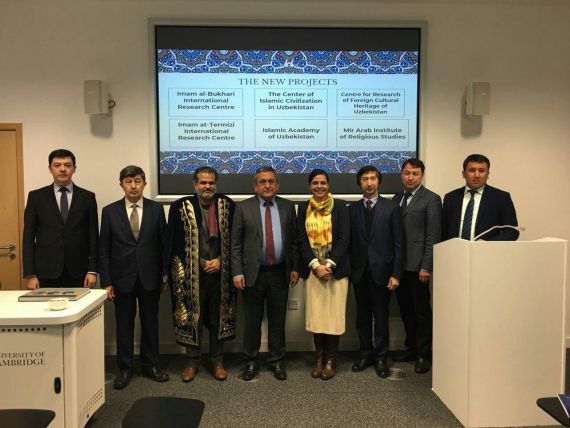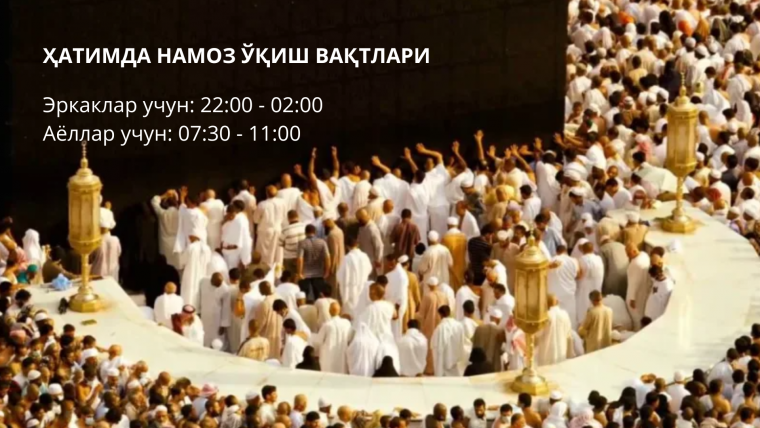Tashkent city



As it was informed earlier, a group of scholars on Islamic and oriental studies have visited Oxford and later Cambridge University. They met with professors and discussed future research perspectives.
Partnership agreements between Central Asian Forum of Cambridge University and Center for Islamic Civilization, Imam Buhari scientific-research center, The Center for research on Uzbek cultural heritage abroad and Tashkent Islamic University were signed.
According to the agreement scholars from Cambridge University are expected to provide lectures at Islamic Academy of Uzbekistan and Tashkent Islamic University and participate in international conferences. Scientific articles of Uzbek researches are going to be published in Cambridge magazines.
The sides agreed on establishing Khorazmi and Ibn Sina scholarships. Cambridge University expressed its willingness to cooperate in scientific and family tourism.
Dr. Siddharth Saxena highly evaluated positive developments in the sphere of ancient cultural heritage research. He also noted that British Oxford and Cambridge University buildings were constructed similar to the architectural styles of madrasahs in Bukhara and Samarkand whic once again proves that friendship relationships were established centuries ago.
We greatly benefit from scientific cooperation with scientists from Uzbekistan as there is great need at our university for specialists who work on cataloging manuscripts in Turkish and Farsi.
It should be noted with great applause that Uzbek lessons started to be offered at Cambridge University since February 12th, 2018. According to the agreements specialists visiting Cambridge from Uzbekistan would be providing Uzbek lessons.
At the end of the meetings the sides expressed their gratitude to the leaders of both countries for the friendly mutual relationships in all spheres of life including science.
Press Service,
Muslim Board of Uzbekistan

Hateem is also known as Hajr Ismail, it has separate prayer timings for both male and female pilgrims.
The Hateem (also known as Hajr Ismail), a sacred area within Masjid al-Haram in Makkah, is considered part of the original Kaaba structure, making it one of the most sought-after spots for worshipers.
Access to this sacred area is carefully regulated to ensure orderly conduct and provide equal opportunities for both men and women to offer prayers.
Men’s Prayer Timings
10:00 PM to 2:00 AM
Men can perform their prayers in the Hateem during the evening hours, from 10:00 PM to 2:00 AM. This time frame allows worshipers to engage in their spiritual practices without the heavy crowds that often gather later in the day.
Women’s Prayer Timings
7:30 AM to 11:00 AM
Women have their designated prayer time in the morning, from 7:30 AM to 11:00 AM.
It is important to note that these timings can vary slightly due to various operational reasons, such as cleaning, maintenance, or other unforeseen circumstance
Duration
10 minutes
Entrance
Western Side
For instance, there have been instances where the Hateem was opened later than the scheduled time, as seen when it opened at 7:30 AM instead of 8:00 AM due to cleaning activities.
The Hateem is believed to be a part of the original Kaaba built by Prophet Ibrahim (Abraham). Praying in the Hateem is considered highly meritorious, and many pilgrims make it a point to include this in their pilgrimage rituals.
For those planning to visit the Hateem, it is advisable to check for any updates on timings to ensure a smooth and fulfilling experience.